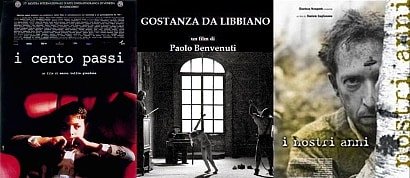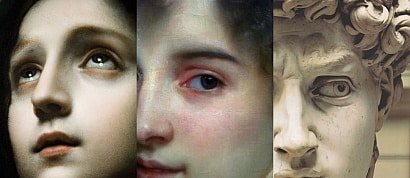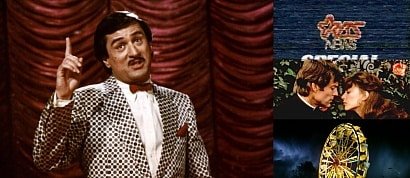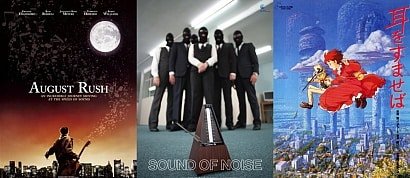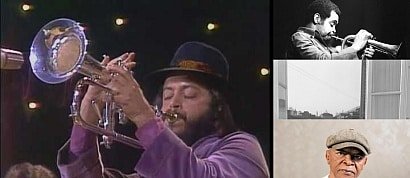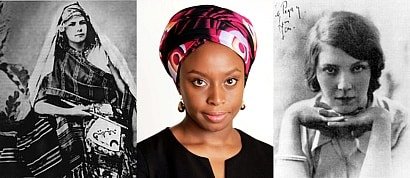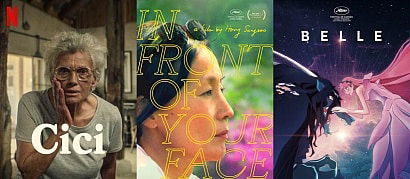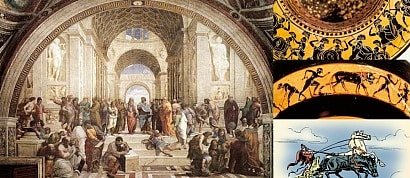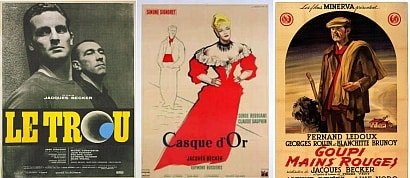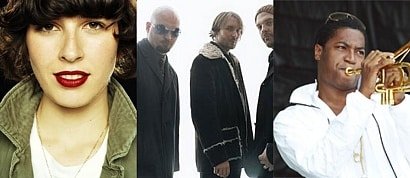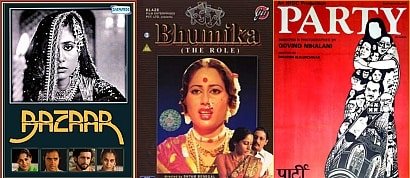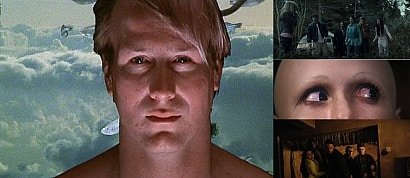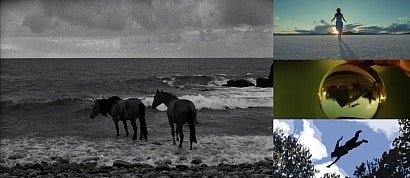Famous adherents of Candomblé, Umbanda, Spiritism
Sort by:
Showing 15 items
Rating:
List Type:
 Add items to section
Add items to section
Candomblé
Candomblé an African-originated or Afro-Brazilian religion, practiced mainly in Brazil by the "povo de santo" (people of the saint). It is a mixture of traditional Yoruba, Fon, Ewe and Bantu beliefs which originated from different regions in Africa. It has also incorporated some aspects of the Catholicism over time. It officially originated in Salvador, Bahia at the beginning of the 19th century when the first Candomblé temple was founded, but it traces back to the earliest days of the slave trade, when enslaved Africans brought their beliefs with them when they were shipped to Brazil. Although Candomblé is practiced primarily in Brazil, it is also practiced in other countries, including Uruguay, Argentina, Venezuela, Colombia, Germany, Italy, Portugal and Spain, having as many as two million followers.
The religion derives from African Traditional Religion beliefs and practices. It was developed in Brazil with the knowledge of African priests who were enslaved and brought to Brazil, together with their mythology, their culture and language, between 1549 and 1888. It is an oral tradition and therefore has no holy scripture. Practitioners of Candomblé believe in one all powerful God called Oludumaré, who is served by lesser deities, which are called orishas. Candomblé practitioners believe that every person has their own individual orisha which controls his or her destiny and acts as a protector. Music and dance are important parts of Candomblé ceremonies, since the dances enable worshippers to become possessed by the orishas.[1] The rituals also involve offerings from the mineral, vegetable and animal kingdoms. There is no concept of good or bad in Candomblé; each person is required to fulfil his or her destiny to the fullest, regardless of what that is.
The religion derives from African Traditional Religion beliefs and practices. It was developed in Brazil with the knowledge of African priests who were enslaved and brought to Brazil, together with their mythology, their culture and language, between 1549 and 1888. It is an oral tradition and therefore has no holy scripture. Practitioners of Candomblé believe in one all powerful God called Oludumaré, who is served by lesser deities, which are called orishas. Candomblé practitioners believe that every person has their own individual orisha which controls his or her destiny and acts as a protector. Music and dance are important parts of Candomblé ceremonies, since the dances enable worshippers to become possessed by the orishas.[1] The rituals also involve offerings from the mineral, vegetable and animal kingdoms. There is no concept of good or bad in Candomblé; each person is required to fulfil his or her destiny to the fullest, regardless of what that is.
 Add items to section
Add items to section
Spiritism
Spiritism is based on the five books of the Spiritist Codification written by French educator Hypolite Léon Denizard Rivail under the pseudonym Allan Kardec reporting séances in which he observed a series of phenomena that were attributed to incorporeal intelligence (spirits). His work was later extended by writers like Léon Denis, Gabriel Delanne, Arthur Conan Doyle, Ernesto Bozzano, Gustav Geley, Chico Xavier, Divaldo Pereira Franco, Waldo Vieira, Alexandr Aksakov, William Crookes, Oliver Lodge, Albert de Rochas, Amalia Domingo Soler and others.
 Add items to section
Add items to section
Umbanda
Umbanda is a Brazilian religion that blends African religions with Catholicism, Spiritism, and considerable indigenous lore. Umbanda is related to, and has many similarities with, other Afro-Brazilian religions like Candomblé and Quimbanda, but has its own identity.
Although some of its beliefs and most of its practices existed in the late 19th century in almost all Brazil, it is assumed that Umbanda originated in Rio de Janeiro and surrounding areas in the early 20th century, mainly due to the work of a psychic (medium), Zélio Fernandino de Moraes, who practiced Umbanda among the poor Afro-Brazilian population. Since then, Umbanda has spread across mainly southern Brazil and neighboring countries like Uruguay and Argentina.
Umbanda has many branches, each one with a different set of beliefs and practices. Some common beliefs are the existence of a single, supreme creator god represented in the Orixá Olorum, sometimes called Obatalá or Zambi. That difference comes from the fact that since the waves of slaves that came into Brazil were from different countries / tribes in Africa, the names of god can change, although it makes hardly any difference in the religion itself. Other common beliefs are the existence of natural forces or "deities" (not as in the Greek Mythology, but "the arms of God, each one with a different function / work area) called Orixás, some of them synchronistic with Catholic saints that act as divine energy and forces of nature; spirits of deceased people that counsel and guide believers through troubles in the material world; psychics, or mediums, who have a natural ability that can be perfected to bring messages from the spiritual world of Orixás and the guiding spirits; reincarnation and spiritual evolution through many material lives (karmic law) and the practice of charity and social fraternity.
Although some of its beliefs and most of its practices existed in the late 19th century in almost all Brazil, it is assumed that Umbanda originated in Rio de Janeiro and surrounding areas in the early 20th century, mainly due to the work of a psychic (medium), Zélio Fernandino de Moraes, who practiced Umbanda among the poor Afro-Brazilian population. Since then, Umbanda has spread across mainly southern Brazil and neighboring countries like Uruguay and Argentina.
Umbanda has many branches, each one with a different set of beliefs and practices. Some common beliefs are the existence of a single, supreme creator god represented in the Orixá Olorum, sometimes called Obatalá or Zambi. That difference comes from the fact that since the waves of slaves that came into Brazil were from different countries / tribes in Africa, the names of god can change, although it makes hardly any difference in the religion itself. Other common beliefs are the existence of natural forces or "deities" (not as in the Greek Mythology, but "the arms of God, each one with a different function / work area) called Orixás, some of them synchronistic with Catholic saints that act as divine energy and forces of nature; spirits of deceased people that counsel and guide believers through troubles in the material world; psychics, or mediums, who have a natural ability that can be perfected to bring messages from the spiritual world of Orixás and the guiding spirits; reincarnation and spiritual evolution through many material lives (karmic law) and the practice of charity and social fraternity.
Added to
4 votes
Spiritual Choices (religions and philosophies)
(14 lists)list by Nusch
Published 10 years, 8 months ago  1 comment
1 comment
 1 comment
1 commentPeople who voted for this also voted for
2012: My film diary
Italian films of the 21st century
Rostros en el Arte
Favorite Drama Films: 1982-1983
Danube Waves
«Kriminalkommissarin Lucy Elbe»
«Kriminalhauptkommissarin Olga Lenski»
Music & Musical I Loved
Flugelhorn Players
Great Gals
My Favorite Films of 2020s
Freudian Trio: Real Life
Top director's films (France)
Ao Vivo
Languages in Indian movies
More lists from Nusch
Horror Movies That Use Drugs As A Plot Point
Documentary films about the Internet
Metaphysical Movies
Films Inspired by The Society of the Spectacle
My favorite movies of 2011
Movies That Have No Hope For Humanity
Favorite Thrillers of The 21st Century
 Login
Login



























